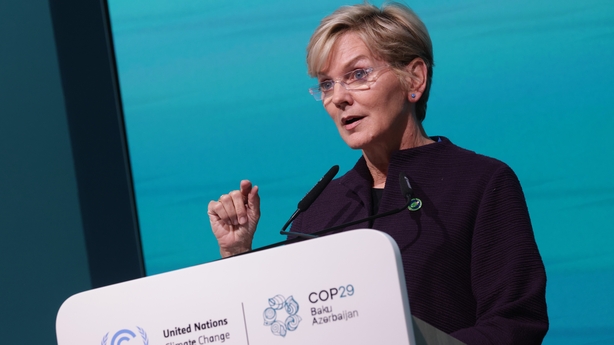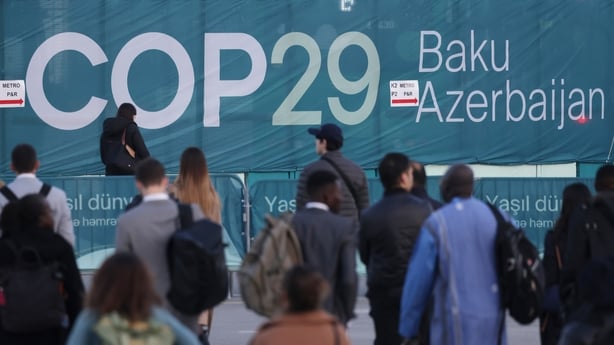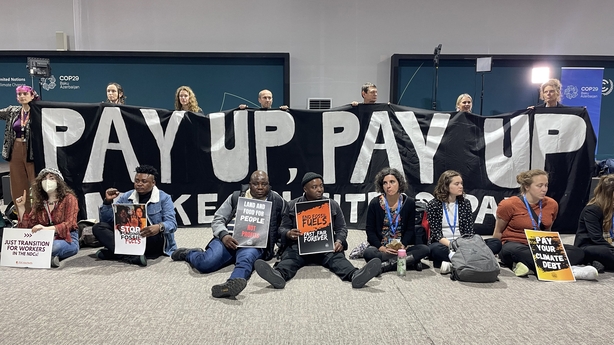Keeping the rise in global temperatures below 1.5C is becoming increasingly difficult to achieve.
There is a rising sense of panic among the most senior, and most influential, United Nations advisers about it.
That is clear following the publication this week of an open letter urging reform of the COP climate talks process.
The election of Donald Trump, and sharply increased political polarisation in the United States and elsewhere, has made matters worse.
In the right political environment, a common drive for consensus can be a powerful tool.
There are 197 parties, plus the European Union at the Climate talks.

If all except a few countries are pulling in one direction and want to agree to new emissions rules or targets, the pressure on the countries holding out can become very intense.
Most will buckle under that kind of pressure.
We have often seen Governments being overwhelmed at COP talks by the pressure of a consensus among their peers to sign up for climate-related targets they were uncomfortable about.
That is precisely what happened at COP28 in Dubai last year when through gritted teeth Saudi Arabia and its group of dissenters eventually agreed, under enormous peer pressure, to include the phasing out of fossil fuels in the written agreement.
However, the letter published this week says this pursuit of consensus, which has always been the great strength of the climate negotiation process, is becoming its greatest weakness.
Increasing polarisation in global politics means the process is taking far too long and diverting the focus away from delivering the commitments already made.
It says the search for consensus is an inefficient use of valuable time when the need for climate action to limit the rise in global temperature is so urgent.
The signatories to the open letter include Chair of the Elders, Mary Robinson, Former United Nations Secretary General, Ban Ki-moon, former UN Climate Chief, Christiana Figueres, and others associated with the Group of Rome.
Every degree of global warming matters. We have seen the catastrophic consequences of climate change so often in the past year or two.

The horrific scenes after the unprecedented rain that fell in the Valencia region of Spain.
The enormous damage from the whooping recent hurricanes, Milton and Helene, in the United States.
The European summer temperature records are broken year after year, and we know that heat kills far more people than storms and flooding.
We know too that sea levels are rising at an increasing rate, endangering small islands.
Even if we could stop all global greenhouse gas emissions in the morning, sea levels will continue to rise for several hundred years more because the climate pollution we have already added to the atmosphere will persist.
Health, livelihoods, food security, water supply, human security, and economic growth all suffer as temperatures rise.
Communities get wiped out.
Vector-borne diseases like malaria and dengue fever spread as rising temperatures enable the flies that bring disease to expand their range.
Plants and animals lose their climatically determined geographical ranges. If they cannot move, they die.
We could go on and on. The consequence of failing to limit global warming to 1.5C is horrific.
So why waste valuable time trying to get everybody around a "talks table" to come to a consensus about new climate commitments if it's getting harder and harder to get agreement and the biggest player at the table, the United States is about to leave.
This is one of the main points made by the expert group. It is a very serious point they want us to know about, and to think about.
If, as he did before, and promised to do again, Donald Trump does pull the United States out of the climate talks, others will be emboldened enough to do the same.
That is exactly what the President of Argentina did this past week.

He pulled his country’s climate negotiators out of the COP29 talks in Baku and ordered them home.
President Javier Milei of Argentina is a major climate change sceptic. He says human-caused climate change is a lie that was made up by socialists.
His spokesperson said Donald Trump has told Mr Milei that he is his favourite president in the world.
It is noteworthy however, that despite his climate scepticism, President Milei had sent a team from Argentina to the climate talks in Baku.
They were physically there, their sleeves rolled up and ready for action, before Mr Milei, hawked them out of it and ordered them home after Donald Trump’s election.
The letter writers may be older, but they are certainly not asleep. They saw this kind of thing coming and warned about it before.
In a previous open letter, 21 months ago, this same group told the United Nations how things were going to pan out if it continued to search for a climate agreement among almost 200 countries.
They warned then that the search for a consensus would become a recipe for delay and the world could no longer afford that delay.
On that occasion, just as now, they urged the UN to abandon the quest for consensus and target the implementation of existing climate promises instead.
The difference with that letter, however, was that they waited for three months after the COP27 talks in Sharm El Sheikh in Egypt ended before publishing it.
It could not disrupt, undermine, or take the limelight away from the COP27 talks as they were taking place.
This time however it is very different. They have done the opposite.
This highly critical letter demanding reform and stating that COP climate negotiations are not fit for purpose has been very strategically published at the height of the ongoing talks in Baku while the whole world is watching.
It is a determined effort to ensure maximum attention and set a new agenda.
It is not that something has gone wrong with the organisation or the operation of the negotiations (that gets better each year).
But there is a new political dynamic. The world around the COP has changed.
We have increased polarisation and regional wars. Populism is in vogue in some parts. Commitment to climate action is being rowed back in places.
Many would agree with the points made; the COP structure simply cannot deliver the change at exponential speed and scale, now essential to ensure a safe climate landing for humanity.








